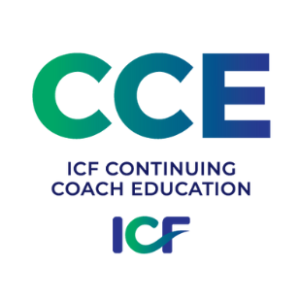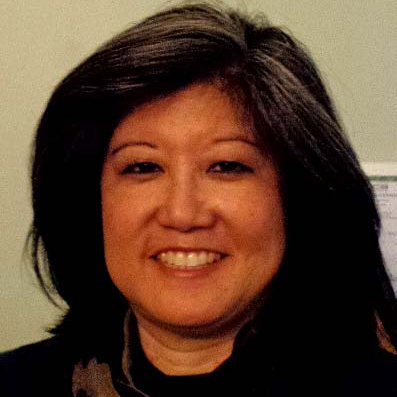Hakomi-Informed Somatic Coaching Certification (HiSC)
Mindful & Somatic Self-Discovery and Transformation
Applications for our 2026 cohort are now open.
Apply today, or sign up to be the first to receive new program announcements.
Hakomi-Informed Somatic Coaching Program (HiSC) is a professional program that integrates core Hakomi methodology into a coaching framework.
This online training focuses on developing mindful and somatic awareness practices to deepen the client’s personal process. You will enhance both your presence and your skillset as a transformational coach.
Participants will expand their relational skills through Hakomi methods that gently but powerfully invite emotional self-discovery. Supported by the coach, clients will engage in a cycle of transformation towards clarity, action, and deeper satisfaction in their work and in their lives.
This training is suited for established coaches as well as new coaches wanting to train in somatics and mindfulness.
Will ICF CCEs be offered?
 We are thrilled to announce that our Hakomi-Informed Somatic Coaching Program has been officially accredited by the International Coaching Federation (ICF) as a Continuing Coach Education (CCE) Program. Students who complete the Hakomi-Informed Somatic Coaching Program will receive 40 CCEs (31 Core Competencies, 9 Resource Development). CCEs can be used to apply for ICF Certification through the portfolio path.
Receiving ICF accreditation is a significant achievement that underscores our commitment to providing high-quality, ethical, and professionally designed coaching programs. This accreditation validates that our program adheres to the highest industry standards, equipping our coaching with the necessary skills, knowledge, and competencies to deliver exceptional coaching experiences.
The ICF accreditation process is rigorous, involving a thorough evaluation of our program’s structure, content, instructional methods, and alignment with the ICF’s stringent core competencies and code of ethics. By meeting these exacting criteria, we demonstrate our dedication to fostering an environment of continuous learning, growth and professional development for our coaches.
We are thrilled to announce that our Hakomi-Informed Somatic Coaching Program has been officially accredited by the International Coaching Federation (ICF) as a Continuing Coach Education (CCE) Program. Students who complete the Hakomi-Informed Somatic Coaching Program will receive 40 CCEs (31 Core Competencies, 9 Resource Development). CCEs can be used to apply for ICF Certification through the portfolio path.
Receiving ICF accreditation is a significant achievement that underscores our commitment to providing high-quality, ethical, and professionally designed coaching programs. This accreditation validates that our program adheres to the highest industry standards, equipping our coaching with the necessary skills, knowledge, and competencies to deliver exceptional coaching experiences.
The ICF accreditation process is rigorous, involving a thorough evaluation of our program’s structure, content, instructional methods, and alignment with the ICF’s stringent core competencies and code of ethics. By meeting these exacting criteria, we demonstrate our dedication to fostering an environment of continuous learning, growth and professional development for our coaches. HiSC will allow you to:
- Apply core Hakomi methodology to your coaching practice
- Discover how to deepen your somatic self-awareness to stay grounded and settled in your coaching seat
- Practice embodiment as a model for self-healing
- Become trauma-informed to support your client’s nervous system regulation
- Apply wisdom and a compassionate mindset to guide your client through times of challenge and adversity
- Join a lively community of somatic coaches who will support your personal growth and expand your network
The Hakomi Method is a mindfulness-based somatic psychotherapy approach practiced around the globe for more than 40 years. In addition, Hakomi offers more than just a therapeutic approach; it's a pathway to self-discovery and healing.
This gentle, and elegant mindfulness-based method guides individuals on a profound exploration of their inner world, allowing them to understand, heal, and grow in ways that are deeply meaningful. The Hakomi method is rooted in the belief that self-awareness and self-study in a relational context, are the cornerstone of transformation, and it offers a compassionate framework for therapists and their clients to delve into the complexities of the human experience.
This is the very first time that Hakomi principles and practices will be offered specifically to the coaching community.
Here is how the ICF (International Coach Federation) defines coaching:
Partnering with clients in a thought-provoking and creative process that inspires them to maximize their personal and professional potential. The process of coaching often unlocks previously untapped sources of imagination, productivity and leadership.
ICF coaches see clients as the experts of their lives—naturally creative, resourceful and whole.
Partnering with a coach can change your life, setting you on a path to greater personal and professional fulfillment. Coaches will work towards your set goals and overcome the challenges that are intrapersonal. The coaching process will help develop self awareness and increase the capacity to take meaningful actions.
Coaches view their clients as the experts of their lives with inner resources that are naturally creative and capable to live a thriving life.
How is Coaching different from Psychotherapy?
Both coaching and psychotherapy support clients in navigating the normal, and sometimes painful, ups and downs of the human condition. Both professions can help clients gain more clarity, take action, and feel more satisfied in their work and lives.
Psychotherapists have an additional role and responsibility as mental health clinicians. Psychotherapists are trained to diagnose and treat a wide range of clinical mental health conditions that are outside the scope of coaching.
Therefore, an ethical coach must understand the parameters of who is and who is not a good candidate for their practice and have a network of people with whom they can consult and make referrals.
Program Curriculum: 40-Hour Live Online Training
HiSC is a 40-hour live online program.
Teaching will be both didactic and experiential with practice groups in between each module. Please note that the curriculum is subject to change.
Step into the essence of what it means to be a coach—not just someone who “does” coaching.
- Ground yourself in the Hakomi principles of Mindfulness, Unity, Organicity, Mind-Body Holism, and Nonviolence, weaving them into the foundation of your practice.
- Cultivate loving presence and compassion to create deep psychological safety, so your clients feel truly seen, accepted, and supported.
- Learn the arc of the Hakomi coaching process while embodying the qualities of a transformative partner who holds space for growth, healing, and transformation.
Develop the art of listening to the body as deeply as you listen to words.
- Practice attuning to your client’s subtle physical cues and gestures.
- Explore somatic tracking as a mindfulness practice for both client and coach.
- Deepen your ability to listen to the nonverbal realm of experience, where profound insight and transformation often emerge.
Step into the power of now, the heart of Hakomi coaching.
- Practice shifting awareness into mindful presence.
- Learn contacting techniques that create powerful openings.
- Examine social location and how it shapes the coaching relationship.
Bring mindfulness into every layer of your coaching.
- Cultivate relaxed, nonjudgmental awareness in both yourself and your client.
- Support clients in accessing parts of themselves often hidden from ordinary conversation.
- Practice simple yet potent methods for inducing a mindful state.
Help clients go beneath the surface with gentle precision.
- Practice accessing the body to uncover insights, images, and emotions.
- Work skillfully with underlying beliefs and inner narratives.
- Access clients’ inner resources through somatic practices.
Cultivate curiosity and experiential learning.
- Apply mindful explorations to deepen awareness.
- Explore the purpose and “why” of mindful explorations.
- Practice somatic tools to invite meaningful discoveries.
Support healing and resilience with safety and care.
- Train a trauma-informed coaching lens.
- Apply somatic resourcing tools to soothe activation and build grounding skills.
- Practice Embodied Wisdom™ self-regulation techniques.
Navigate the edges of growth and breakthrough.
- Deepen understanding of common coaching challenges.
- Transform limiting beliefs and barriers into opportunities for growth.
- Work with choice points to bring clarity and focus to each session.
Turn insights into embodied change.
- Apply integration techniques to anchor learning.
- Guide mindful integration as clients move toward completion.
- Support clients in designing somatic goals, sustaining practices, and tangible actions.
Close with intention and open to growth.
- Practice powerful tools for completion and closure.
- Engage in HiSC practice for real-world application.
- Design a personalized plan for ongoing development and integration.
HiCS Faculty

Manuela Mischke-Reeds, MFT
Certified Hakomi Therapist and Trainer

Manuela Mischke-Reeds, MFT
Certified Hakomi Therapist and Trainer

Ketriellah Goldfeder
Certified Hakomi Practicioner

Ketriellah Goldfeder
Certified Hakomi Practicioner

Dominique Lando, LMFT
Certified Hakomi Therapist and Trainer

Dominique Lando, LMFT
Certified Hakomi Therapist and Trainer

Emmy Akiyama, MA, LMFT
Certified Hakomi Therapist and Teacher

Emmy Akiyama, MA, LMFT
Certified Hakomi Therapist and Teacher
Applications for our 2026 cohort are now open.
Apply today, or sign up to be the first to receive new program announcements.